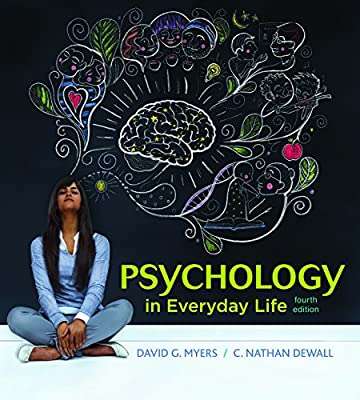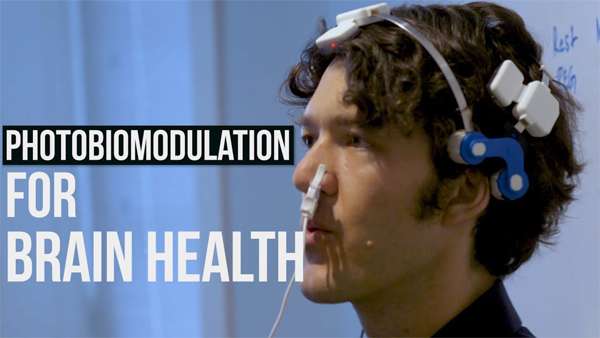Do you think that psychology is only for students, therapists, and academics? If so, then you believe revise because psychology is both a theoretical and practical aspect that can use in many ways. In this blog, we discuss some important uses of psychology that can change your life in a better way.
Psychology is about the study of the human mind and behavior in a scientific way. It studies human nature and its influence on their behavior. It is the application of knowledge to understand health issues, relationships, employment, education, etc. Psychology will help you while making decisions, stress, and time management. It is a subject that includes humanities and natural sciences. In everyday life, Psychology is constructive.
Here are five ways that psychology applies to everyday life:
- Improving Communication Skills
Through Psychology, it is easy to understand how people think and behave and communicate with others. With the help of psychology, people can realize gratitude and actions that will make communication more straightforward.
Enhance Self–Confidence
An individual can acquire self–confidence by learning and knowing more about yourself and your personality. It helps the person to identify their strengths and weakness and also enables them to rebuild.
Enriching Career
Psychology helps people to comprehend others and build relationships and friendships. Those people who have an idea of psychology would have the chance to establish their company with coworkers better.
Building Relationships
As we know, psychology is studying about human mind and behavior. Psychology plays a vital role in understanding human actions, and it fosters their relationships.
Insight about people’s behavior
Psychology tells about all features of human behavior. It tells about routine human nature but also finds differences in their behavior. However, clinical Psychology helps to gain insight into people’s behavior.
Importance of Psychology in Everyday Life:
Two aspects of psychology are essential:
- Application Aspects:
Psychology engages theoretical principles and laws for monitoring, changing human behavior, and controlling through practical research—and applied psychology structures criteria and standards that differentiate normal behaviors from abnormal behavior.
Psychology is very crucial in the life of different individuals and communities. At the beginning of psychological studies, psychology is concerned with treatment and understanding of human behavior. It tries to bring the necessary change and alterations to this behavior. Psychology will use in different fields of education like books, curricula, and other teaching aids.
- Psychology can manage individual behaviors and assume their occurrence.
- It will study various kinds of human and animal behavior.
- It helps streamline individuals their different lifestyles.
- It can study the rules that affect psychological phenomena, translate them, make assumptions, and try to change them if they require any change.
- It will help humans to build relationships that depend on mutual respect between different groups and people.
- It provides support to individuals in finding the ways and types of thinking.
- Theoretical Aspect:
Psychology examines in its theoretical aspects of psychological phenomena and behavioral patterns that show people’s external behavioral reactions to approach general principles and rules. It controls the presence of a specific event, mechanism, and how it looks.
How can Psychology help you Improve Your Lifestyle?
Psychology is mainly of great importance as it relates to the study of mental processes and behavior simultaneously. It is used to understand better and support an individual with psychological disorders and mental illness. Psychology is also applicable in our daily lives and also in many aspects of our lives.
Improve your Communication Skills
Communication includes many more than you talk or write. The studies show that non-verbal signs are a huge part of our communication and communicate your message efficiently. Some are:
- Learn how to be expertise in the art of non – verbal communication.
- Start to observe non – verbal signs in others.
- Use excellent eye contact
- Learn how to utilize a soft tone to communicate your message effectively.
Enhance your memory power
Remembering is an essential element in human life; good memory treasure should be preserved and developed. Any memory imbalance confuses the route of life, and forgetfulness frequently becomes inherent. Researching how to shape new memories and how and why we’ve got forgotten has caused some of the effects that may apply directly to your daily life.
Our brains lose the ability to remember specific places and matters over time. Just as we do muscle-strengthening exercises, we have to enhance our memory by doing some exercise additionally.
We have to additionally pay attention to mental health and comply with the advice which could save you diseases together with Alzheimer’s or dementia.
Stay Motivated and Stick with Your Goals
If your goal is to lose weight, stop smoking, or research a brand new language. Educational psychology gives tips and techniques for buying motivation to boost motivation levels while you approach a task.
You can use a number of the following tips from studies in cognitive and academic psychology: -
- Introduce new items to hold your interest high.
- Learn new matters based on your current knowledge.
- Set clean desires which might be immediately related to the task.
- Reward yourself for a good job.
Make More Accurate Decisions
Cognitive psychology studies have provided a wealth of data about decision-making abilities. By making use of those techniques in your life, you may learn to make wiser choices. Subsequent studies in this area, known as behavioral economics, have yielded a few key findings that you may use to make more intelligent options for money management. The subsequent time you want to make a big decision, try and use the “six thinking hats” method by searching on the attitude from multiple perspectives, along with rational, emotional, intuitive, creative, positive, and opposing views.
Conclusion
Psychology is essential science that one can study at all. Psychology is crucial in all areas of life. One of the maximum essential capabilities of psychology is that it is possible to increase a conscious and distinctive generation.
Psychology allows people’s behavior and enhances the labor market, and it is essential to have a psychologist in any clinical team in hospitals or health care centers. Likewise, it is crucial to have a psychologist in the workplace who will maintain a balanced and healthy work environment.
In addition, psychology also consists of the psychology of boom and development, observing crime and its products and others. Remember that you are making the proper choice if you are searching to keep psychology as it will open up impossible horizons in the future.
The American Psychological Association defines “psychology” as the study of mind and behavior.
Using this definition, studying psychology is often associated with the experience inside the four walls of a therapist’s office and the common image of someone sitting on a couch. Or maybe you connect it to the research and statistics found inside academic textbooks. Although each of those examples are certainly part of it, the truth is that psychology is all around us.
From the decisions we make each moment of the day, to the people we interact with, understanding human behavior is at the heart of psychology. Look around your world and you’ll find plenty of everyday examples of psychology in action. Read on to discover how psychology plays a major role in five areas of everyday life.
Request info
Psychology in Advertising
Have you ever noticed that certain ads appeal to you—or even totally convince you to buy something? It was probably because that ad used an advertising tactic based on psychological principles.
Three advertising tactics that take advantage of social psychology concepts include:
- The scarcity principle
- Consensus
- The mere-exposure effect
The scarcity principle means that people want what they can’t have, or what they think they can have but others cannot. Advertisers simulate scarcity through emphasizing things like limited time offers, last chance products, and rare items. This makes products and services seem more valuable and desirable.
Just think about the last time you heard that something you wanted was about to go out of stock permanently, how did you feel? Were you more likely to consider buying it?
Advertisers use consensus to show that an item is popular and well-reviewed. If an ad highlights positive testimonials and reviews, or how many happy customers they have, they want to show you the positive consensus about their service or product. This makes you trust the advertiser and service or product more.
Many online marketers include reviews of products in their stores to help consumers make better choices; however, there have also been controversies about whether advertisers are faking their reviews and/or censoring the number of bad reviews for the same reasons.
The mere-exposure effect means that when individuals are exposed to a stimulus more often, they’re more likely to prefer that stimulus. Businesses want to get their advertisements in front of your eyes as often as possible, so you build familiarity with their products and maybe even purchase them.
Many of us can sing along with popular commercial jingles almost as well as songs on the radio. Or we get some well-done taglines in our heads like “Can you hear me now?”, “A Diamond is Forever”, “The Breakfast of Champions”, “Just Do It”, or “Got Milk?”, among many others. These marketing hits help with the exposure effect.
Psychology in Health Care
Psychology also impacts how we think and act about our diet and exercise.
For example, a study in Psychological Science demonstrates that people under stress tend to eat high-calorie foods. Individuals who think in a “live for today” mindset ate 40 percent more calories than the control group.
This showcases how much our mental state can affect healthy eating habits. And if eating habits are impacted by our mental state then other lifestyle habits and choices can be as well, like exercise.
Another study illustrates how “gamifying” exercise improved performance. Showing accelerating scores on a screen encouraged individuals to exert more energy and work harder. Even though the scores were meaningless, they still had a clear psychological and physiological impact on the study’s participants.
Relationships
Psychology and understanding human behavior also play a role in how we develop our closest relationships. According to researchers, positive relationships have an important impact on your mental health and physical health in the same way that healthy eating and not smoking can.
In fact, studies have shown that children who grow up in a stable home with positive familial relationships are happier as they age in comparison to other children.
The hormone oxytocin, which is produced in the hypothalamus, is key to helping us build and maintain strong social bonds. In addition to helping parents and children form these bonds, oxytocin also has an effect on the romantic relationships we form in life.
According to researchers at the University of North Carolina at Chapel Hill, oxytocin’s effect on the brain gives partners “rose-colored glasses” and a more positive outlook on the relationship’s big picture.
If you are interested in learning more about how psychology can impact relationships, a degree with a specialization in the field of marriage and family therapy can provide you even greater insight.
Psychology in the Workplace
One of the most stressful workplace situations is navigating how to ask for a raise. To build your confidence and increase the chance of receiving what you ask for, it’s important to be prepared. Some psychological principles, like knowledge of recency bias, can help with this.
Recency bias is when people recall things that happened more recently over things that happened a long time ago. Remember this when approaching your manager. Make a list of your successes, positive feedback, and important contributions over a long period and clearly outline them specifically. This will help to combat any potential recency bias and remind your manager that you deserve more.
Psychological concepts can also help you become a better manager. Companies like Google and Aetna have emphasized the importance of mindfulness in management. Victor Lipman, author of The Type B Manager, discusses how being more self-aware, empathetic, and patient helps you become a more effective and mindful manager.
If you’re interested in the interplay of psychology and employee engagement, retention, and productivity, you may consider a psychology degree with a minor in business.
Psychology in Politics
Have you ever considered how psychology impacts the political world and your political views?
Childhood can actually foreshadow what one’s political leanings might be as an adult. A study from the United Kingdom found that a child’s early personality traits can be linked to their political views in adulthood. The study found links between traits like anxiety and hyperactivity and being more politically dissatisfied as an adult.
Psychological concepts can also be used to increase voter turnout. Studies suggest that candidates who demonstrate authentic gratitude toward their potential voters before an election increase the likelihood of their voters turning out. This appeals to our desire, as voters, to feel important and needed, and can work in favor of civic engagement.
Ready to Begin a Career in Psychology?
The Chicago School offers a variety of general psychology programs proven to develop a foundational and multicultural understanding of psychology to work in many professional settings.
Psychology Degrees
Want to learn more?
Using a psychological lens, you can continue to find more and more applications of psychology in action in our everyday world.
If you’re fascinated by psychology’s impact on daily actions, a psychology degree could be the right choice for you. Fill out the form below to request more information about the different programs we offer, or visit our general psychology programs page to learn more about our different minors, concentrations, and specializations.



